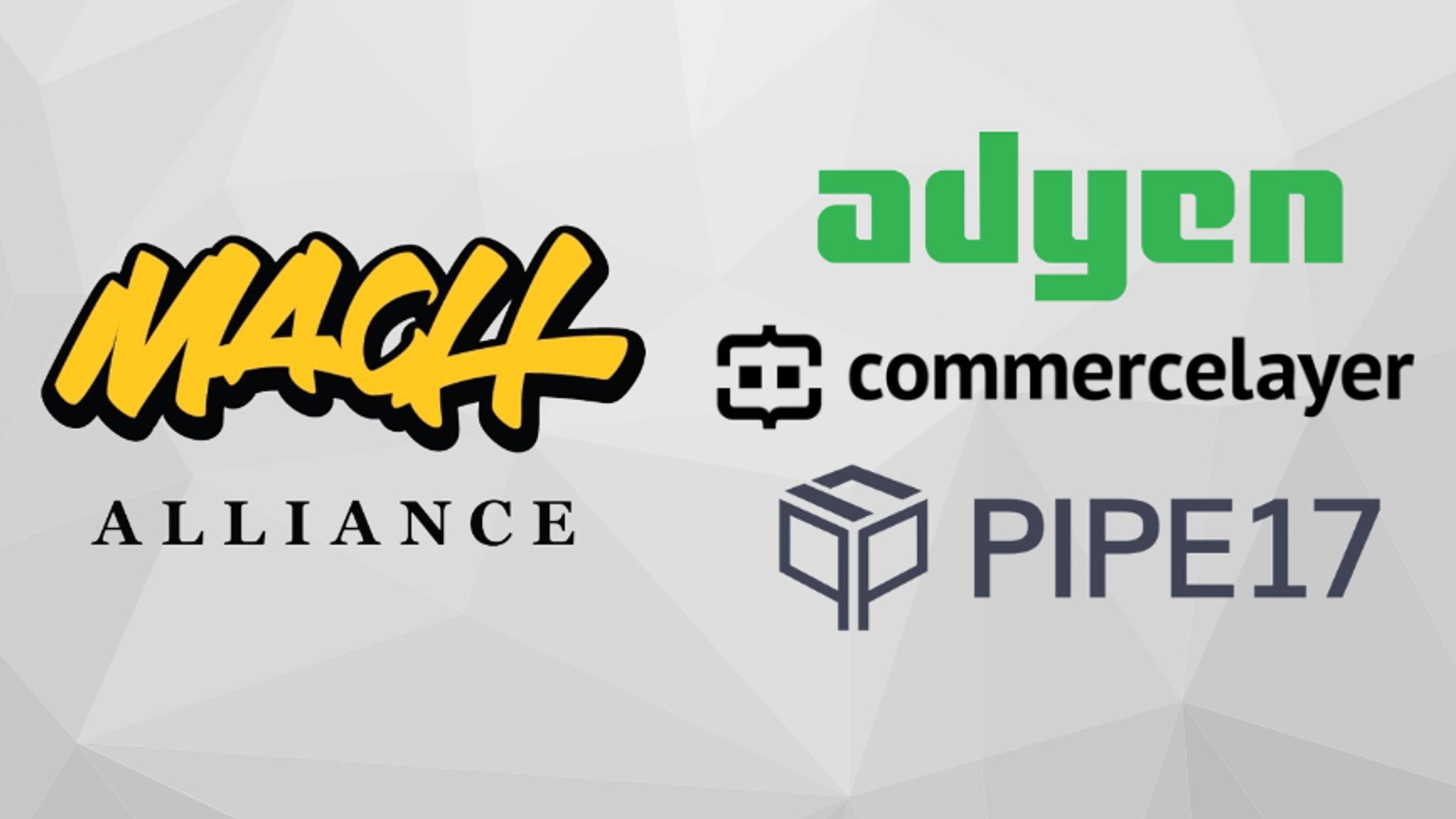Adyen, Commerce Layer and Pipe17 Named Newest Members of MACH Alliance

Last week, the MACH Alliance announced the addition of three new members to the organization: Adyen, Commerce Layer, and Pipe17. With these new members, as well as naming Google Cloud an Enabler member earlier this month, the MACH Alliance now boasts 74 total members.
Adyen: an A+ choice for financial tech
The Netherlands-based financial technology company, Adyen, was the first added to the MACH Alliance roster last week. Adyen’s all-star list of clients includes Facebook, H&M, Uber, and Microsoft, with a specialization in providing end-to-end payment options and financial products in one solution.
“Joining the MACH Alliance is a natural move for us, as our success hinges on the strength and flexibility of our digital backbone, of which MACH solutions are foundational,” said Brian McDonnell, Senior Vice President, Partnerships at Adyen. “Unified commerce for retailers and other players in the fintech space wouldn’t be possible with legacy technology. We believe the MACH framework is the standard that will change the game for how businesses connect, transact and grow.”
Commerce Layer provides ready-to-use headless commerce experiences
Commerce Layer, an Italy-based, API-first, headless commerce platform, helps customers scale their businesses for almost any commerce channel in any market. Commerce Layer utilizes a set of “ready-to-use micro frontends that allow you to quickly create a headless commerce site without compromising the flexibility and the uniqueness of your brand.”
They also focus on commerce, merchandising, and product discovery rather than content and catalog management.
Occupying MACH principles, Commerce Layer promotes composable, headless commerce and offers customers a “clean separation of commerce and content,” which helps developers design and build efficient and clean shopping experiences.
Pipe17 offers operations ease from initial sale to delivery
Seattle-based Pipe17 is an API-first e-commerce integration operations platform that helps customers simplify the workflow of orders from the point of sale to fulfillment obligations.
As opposed to just focusing on quick and scalable e-commerce solutions, Pipe17 uses composable technology to connect inventory data, as well as shipping and fulfillment services, which help companies keep the same tempo from sale to delivery. They promise users improved sales, smoother integrations, greater visibility for consumers post-checkout and easy accessibility for developers.
MACH Growth at MACH Speed
Since the MACH Alliance formed in June 2020, the organization has had a stringent process for accepting new members based on principles aligned with MACH (microservices, API-first, cloud-native SaaS and headless). With the goal of “future proofing enterprise technology,” each organization must embrace MACH architecture in order to be accepted. With growth increasing from 15 organizations at the launch of the MACH Alliance to now almost 75, companies are taking note of the benefits of early adoption of these principles, compared to other monolithic enterprises. With four new additions already in the first month of 2023, we anticipate seeing even more adoption of MACH principles and growth for the MACH Alliance continuing for the rest of the year.
About the MACH Alliance
The MACH Alliance is a [501(c)(6)] non-profit organization, governed by an independent board and does not endorse specific vendors, members or otherwise. The Alliance was formed in June 2020 to help enterprise organizations navigate the complex modern technology landscape. It aims to guide and show the business advantage of open tech ecosystems that are Microservices based, API-first, Cloud-native SaaS and Headless. All MACH Alliance members meet certification principles that are published on the website.
The MACH Alliance welcomes technology companies and individual industry experts who share the same vision for the future. Learn more at machalliance.org, read here about MACH certification and follow us on Twitter and LinkedIn.